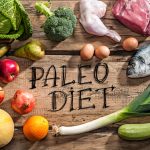Introduction to Pre-Workout Nutrition
The Importance of Pre-Workout Meals
Embarking on a workout without the proper fuel is like setting out on a road trip with an empty gas tank. Pre-workout meals are crucial for priming the body with the energy necessary to power through a training session. They help to maximize glycogen stores, enhance performance, and prevent muscle breakdown. Whether you’re a seasoned athlete or a fitness enthusiast, understanding the significance of what you eat before exercise can make a substantial difference in your overall performance and recovery.
Understanding Energy and Performance
Energy and performance go hand in hand. The body’s energy systems are complex, and they require different fuel sources depending on the intensity and duration of the activity. Carbohydrates are the body’s preferred source of quick energy, especially for high-intensity workouts, while fats are utilized during longer, less intense sessions. Protein, although not a primary energy source, plays a critical role in muscle repair and growth. Balancing these macronutrients and timing their intake effectively ensures that the body has the right type of energy at the right time.
The Role of Macronutrients
Macronutrients—carbohydrates, proteins, and fats—each have a unique role in pre-workout nutrition:
- Carbohydrates: They are the main fuel for short and high-intensity workouts, as they replenish muscle glycogen stores.
- Proteins: Consuming protein before a workout can increase muscle protein synthesis, aiding in muscle growth and recovery.
- Fats: While not the primary source of energy for high-intensity workouts, fats provide sustained energy for longer, moderate-to-low intensity exercise.
Understanding the function of each macronutrient can help you tailor your pre-workout meal to your specific exercise demands.
Timing Your Pre-Workout Meal
The timing of your pre-workout meal is as important as what you eat. Ideally, a complete meal with carbs, protein, and fat should be consumed 2-3 hours before exercise. This allows for digestion and absorption while preventing any gastrointestinal discomfort during the workout. If you’re pressed for time, a smaller meal or snack rich in simple carbohydrates and some protein can be consumed 45-60 minutes before your session. This will provide a rapid source of energy and amino acids, ensuring that your body is primed for the demands of your upcoming activity.
In conclusion, pre-workout nutrition is not just about eating; it’s about fueling your body with the right nutrients at the right time to enhance performance, prevent injury, and speed up recovery. By paying attention to the types of food and their timing, you can ensure that your body is ready to tackle any physical challenge.
Macronutrient Breakdown
Carbohydrates for Energy
Carbohydrates are the primary fuel source for high-intensity exercise. They are converted into glucose, which is then stored as glycogen in the muscles and liver. When you engage in short, explosive activities, or even longer endurance events, it’s the glycogen that your body taps into to keep you going. Complex carbohydrates, such as whole grains, legumes, and vegetables, provide a sustained energy release, while simple carbohydrates, like fruits and energy gels, offer a quicker energy boost. To optimize glycogen stores, athletes often use a strategy known as carb loading before major events, which involves consuming a high-carbohydrate diet for several days.
Proteins for Muscle Support
Proteins are crucial for muscle repair and growth. Consuming protein before a workout can increase muscle protein synthesis, leading to improved muscle recovery and growth over time. Foods rich in high-quality protein, such as lean meats, dairy, eggs, and plant-based sources like lentils and tofu, provide the amino acids necessary for muscle support. A pre-workout meal with a good source of protein can help to reduce muscle damage and soreness, making it an essential component of pre-exercise nutrition, especially for resistance training and intense workouts.
Fats for Sustained Energy
Fats are a more concentrated source of energy, ideal for longer-duration, moderate-to-low-intensity exercises. They are metabolized slower than carbohydrates, providing a steady supply of energy for extended periods. While fats should not be the primary focus of a pre-workout meal, incorporating healthy fats from sources like avocados, nuts, seeds, and olive oil can help maintain energy levels for workouts that last beyond the point where glycogen stores are depleted. However, due to their slow digestion, it’s best to consume fats in moderation and well before the start of a workout to avoid gastrointestinal discomfort.
In summary, a balanced approach to pre-workout nutrition should include a mix of carbohydrates for immediate energy, proteins for muscle support, and a small amount of fats for sustained energy release. The timing and proportion of these macronutrients can be adjusted based on individual needs, workout intensity, and duration to ensure maximum performance and recovery.
Pre-Workout Meal Ideas
Quick and Easy Pre-Workout Snacks
When time is of the essence, and you’re looking for a quick energy boost before hitting the gym, simple and fast-digesting carbohydrates are your best friend. These snacks should be low in fat and fiber to minimize the risk of digestive discomfort during your workout. Here are some quick snack ideas:
- A banana or an apple for a quick dose of natural sugars.
- A slice of whole-grain toast with a thin layer of almond butter.
- A small serving of Greek yogurt with a drizzle of honey.
- A handful of dried fruit, like raisins or apricots.
- An energy bar that has a balance of carbohydrates and protein.
Remember, the closer you are to your workout time, the smaller and simpler your snack should be to ensure it’s digested quickly.
Balanced Pre-Workout Meals
If you have more time before your workout (ideally 2-3 hours), aim for a balanced meal that includes all three macronutrients: carbohydrates, protein, and a little bit of fat. This combination will provide sustained energy and support muscle function. Here are some meal ideas:
- A sandwich on whole-grain bread with lean protein like turkey or chicken, paired with a side salad.
- An omelet made with veggies and a slice of whole-grain toast.
- A bowl of oatmeal topped with sliced banana and a scoop of protein powder.
- A serving of brown rice or quinoa with grilled chicken or tofu and steamed vegetables.
- A smoothie made with milk or a milk alternative, a scoop of protein powder, and your choice of fruits.
These meals combine complex carbohydrates with protein and healthy fats to fuel your body for the demands of a workout.
Hydration: The Underrated Pre-Workout Essential
Often overlooked, hydration plays a crucial role in optimizing performance and preventing fatigue. Water is essential for maintaining blood volume and regulating body temperature during exercise. Here are some hydration tips:
- Drink water throughout the day leading up to your workout, not just before you start.
- Include a beverage with electrolytes if you’re engaging in prolonged or high-intensity exercise, especially in hot and humid conditions.
- Avoid sugary drinks and excessive caffeine, which can lead to dehydration.
- Listen to your body’s thirst signals and drink accordingly.
Proper hydration should be a continuous process. If you’re well-hydrated before you begin, you’ll start your workout with an advantage.
In conclusion, your pre-workout meal or snack can significantly impact your energy levels and performance. Whether you choose a quick snack or a full meal, focus on easily digestible carbohydrates and include a source of protein to fuel your muscles. And don’t forget the importance of staying hydrated before, during, and after your workout for optimal performance and recovery.
Special Considerations for Dietary Restrictions
Vegan and Vegetarian Pre-Workout Options
For those following a vegan or vegetarian diet, pre-workout nutrition requires a bit more creativity to ensure adequate energy and muscle support without animal products. Carbohydrates are still the primary fuel source, so options like whole grain bread with almond butter, oatmeal with soy or almond milk, or a quinoa salad with mixed vegetables can provide both the energy and the protein necessary for a good workout. Vegans and vegetarians should focus on combining different protein sources, such as beans and rice or hummus with whole wheat pita, to ensure they’re getting all essential amino acids.
Gluten-Free Energy Boosters
For those with celiac disease or gluten sensitivity, gluten-free pre-workout foods are essential. Fortunately, many high-carbohydrate foods are naturally gluten-free, including potatoes, rice, and corn. A pre-workout meal could include a rice cake with peanut butter and banana slices, a bowl of rice or corn-based cereal with lactose-free milk, or a baked sweet potato with a drizzle of honey. It’s important to read labels carefully, as gluten can be found in unexpected products.
Managing Food Intolerances and Allergies
Food intolerances and allergies can add an extra layer of complexity to pre-workout nutrition. It’s crucial to avoid any foods that could cause adverse reactions. For those with lactose intolerance, lactose-free dairy or plant-based milk alternatives can be good options. Nut allergies require avoidance of nut-based products, so seeds like sunflower or pumpkin can be a safe alternative. Always consult with a healthcare provider or a dietitian to create a pre-workout meal plan that accommodates any specific dietary restrictions while still meeting nutritional needs.
Note: Individuals with dietary restrictions should always consult with a healthcare professional or a registered dietitian to ensure their pre-workout nutrition is balanced and suitable for their specific needs.
Pre-Workout Foods to Avoid
High-Fat Foods and Digestive Discomfort
While fats are an essential part of a balanced diet, consuming high-fat foods before a workout can lead to discomfort and hinder performance. Foods rich in fat take longer to digest, which means they sit in your stomach, potentially causing gastrointestinal distress during exercise. This can manifest as cramping, bloating, or even nausea, particularly during high-intensity workouts where the body demands a quick supply of energy. To avoid this, it’s best to steer clear of heavy, greasy foods like fried items, full-fat dairy products, and fatty cuts of meat before engaging in physical activity.
Sugary Snacks and Energy Crashes
It might be tempting to reach for a sugary snack for a quick energy boost before hitting the gym, but this can lead to an inevitable crash. Foods high in sugar can cause a rapid spike in blood glucose levels, providing immediate energy. However, this is often followed by a sharp drop in blood sugar, which can result in fatigue and decreased performance. Instead of grabbing a candy bar or a sugary pastry, opt for snacks that provide a steady release of energy, such as a piece of fruit or a small serving of whole grains.
Processed Foods and Inflammation
Processed foods often contain additives, preservatives, and high levels of sodium, which can contribute to inflammation and dehydration. Inflammation can affect muscle recovery and overall performance, while dehydration can lead to decreased endurance and increased fatigue. Additionally, many processed foods are high in refined carbohydrates and low in nutritional value, offering little in terms of sustained energy for your workout. To maximize your energy and recovery, focus on whole, unprocessed foods that are rich in nutrients and have anti-inflammatory properties.
Remember, the goal of pre-workout nutrition is to fuel your body in a way that maximizes energy and performance while minimizing discomfort. By avoiding high-fat foods, sugary snacks, and processed items, you can ensure that your body is primed for optimal performance and recovery.
Understanding the Impact of Organic and Natural Foods
Benefits of Organic Pre-Workout Meals
Organic foods are grown without synthetic pesticides, herbicides, and fertilizers, and they often contain higher levels of certain nutrients compared to their non-organic counterparts. When it comes to pre-workout meals, choosing organic can have several benefits:
- Reduced Toxin Exposure: By consuming organic foods, you minimize your intake of potentially harmful chemicals that could interfere with energy levels and overall health.
- Enhanced Nutrient Profile: Some studies suggest that organic produce may have higher levels of antioxidants and micronutrients that are essential for energy production and muscle function.
- Better Taste and Digestibility: Many people find that organic foods taste better, which can make pre-workout meals more enjoyable. Additionally, the absence of chemicals may make these foods easier to digest, reducing the risk of gastrointestinal discomfort during exercise.
The Difference Between Natural and Synthetic Supplements
When it comes to supplements, the terms “natural” and “synthetic” can be confusing. Natural supplements are derived from food sources and are closer to the form found in nature, while synthetic supplements are manufactured through chemical processes.
Natural Supplements: These may be more easily recognized and utilized by the body. For example, natural vitamin E (d-alpha-tocopherol) is better retained by the body than synthetic vitamin E (dl-alpha-tocopherol).
Synthetic Supplements: These can be more concentrated and offer a consistent dose, but they may not be as bioavailable or effective as their natural counterparts. It’s important to research and choose supplements wisely, especially when preparing for a workout.
How to Choose Clean and Wholesome Pre-Workout Foods
Selecting the right pre-workout foods is crucial for maximizing energy and performance. Here are some tips for choosing clean and wholesome options:
- Read Labels: Look for foods with minimal ingredients and without added sugars, artificial flavors, or preservatives.
- Whole Foods: Prioritize whole fruits, vegetables, grains, and lean proteins. These foods provide a complex array of nutrients and sustained energy.
- Hydration: Choose beverages like water or coconut water over sugary sports drinks. Proper hydration is key for peak performance.
- Organic and Non-GMO: Whenever possible, opt for organic and non-GMO foods to reduce exposure to harmful substances and support overall health.
By incorporating organic and natural foods into your pre-workout routine, you can enhance your energy levels, improve your workout performance, and support your body’s long-term health.
Conclusion: Crafting Your Pre-Workout Meal Plan
Personalizing Your Pre-Workout Nutrition
Every individual’s body responds differently to various foods and timing, making personalization key in your pre-workout nutrition. Start by assessing your body’s response to different foods and their impact on your energy levels during workouts. Consider factors such as your metabolic rate, the intensity of your exercise, and your overall fitness goals. It’s also important to take into account any dietary restrictions or allergies you may have. Experiment with different combinations of macronutrients to find what gives you the best performance boost.
Incorporating Whole Foods for Optimal Health
Whole foods should be the cornerstone of your pre-workout meal plan. They provide a rich source of natural vitamins, minerals, and other nutrients that are essential for energy production and muscle function. Opt for complex carbohydrates like oats, quinoa, or sweet potatoes, which offer sustained energy release. Include lean proteins such as chicken, fish, or plant-based alternatives like tofu to support muscle repair and growth. Don’t forget to add healthy fats from sources like avocados or nuts for their energy-sustaining properties.
Final Tips for Pre-Workout Eating
- Timing: Aim to eat your pre-workout meal about 2-3 hours before exercising to give your body time to digest and absorb the nutrients.
- Hydration: Stay well-hydrated before, during, and after workouts. Water is essential for optimal physiological function and performance.
- Portion Control: Be mindful of portion sizes to avoid feeling sluggish or uncomfortable during your workout.
- Listen to Your Body: Pay attention to how your body reacts to pre-workout meals and adjust accordingly. If certain foods cause discomfort or do not seem to provide enough energy, make the necessary changes.
By personalizing your pre-workout nutrition, incorporating whole foods, and following these final tips, you’ll be well on your way to maximizing your energy and performance during workouts. Remember, consistency is key, and over time, you’ll discover the perfect pre-workout meal plan that works best for you.
Purium’s Performance Enhancing Products
Purium offers a range of performance-enhancing products specifically designed to help athletes reach their full potential. Some of these products include:
- Super Xanthin: An astaxanthin supplement that helps reduce muscle soreness, improve endurance, and speed up recovery time.
- MVP Sport: A plant-based protein powder that supports muscle growth and recovery, perfect for post-workout nutrition.
- Ionic Elements: A trace mineral supplement that helps with hydration and muscle function, ensuring you can push yourself to the limit.
READ MORE: Pre-Workout Supplements Are They Effective?
Sources:
https://blog.nasm.org/workout-and-nutrition-timing
https://www.eatright.org/fitness/physical-activity/exercise-nutrition/timing-your-pre-and-post-workout-nutrition
https://www.mayoclinic.org/healthy-lifestyle/fitness/in-depth/exercise/art-20045506









